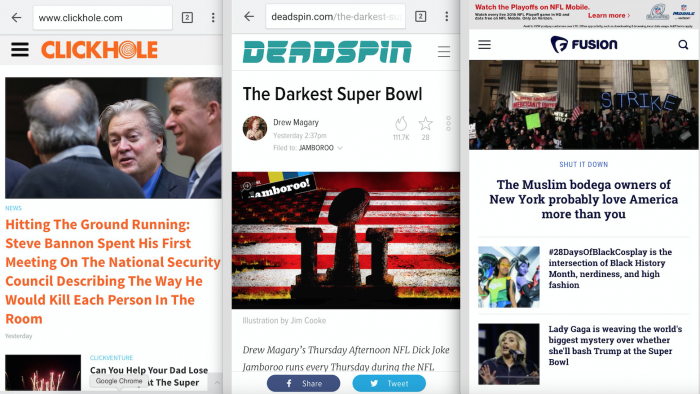
They gave it to us.Ī written guarantee of indemnity is another good example of something that should be an industry standard.


So after those posts came down the union said, we want to know that Univision will have our backs if anything controversial happens and our authors are also being sued. The general standard in the media is that your company will cover you if you’re sued for something you wrote. We decided that we want to have some discussions about the process for pulling down stories and ask for indemnity in writing.Īs a result, we got them to give us a guarantee of indemnity. This is not something we want to do.” We had a whole tussle about them taking down those posts. The union brought everyone together, and we said “This is not okay with us. Initially Lee had had a lot of good things to say to us about journalism. That at least showed some sense of urgency on Univision’s part to talk with us, that this was a precarious situation. We were told Isaac Lee, one of the top editorial people at Univision, was coming up again to talk with us. We got mad about the stories being pulled and had a union meeting on the Monday morning after it happened. It’s a basic example of how just the fact of having a union creates a channel for management to communicate through, so it’s not just at their whim - they feel like this is an entity they have to talk to. In our contract we established a monthly meeting with management where they have to sit down with people from the union and talk about what’s going on. Many of these companies are still being run as if they were just this little thing, but Vice is a multibillion-dollar company, HuffPo is a big company, Gawker was a huge company. When people realize they work for a real company, they start to have certain expectations. They all start out really small and sort of boot-strappy, and then you wake up one day and you’re like, “Wow, - look at this fuckin’ office! What happened?” They go from working in a bedroom to being a real company. It was pretty standard workplace communication stuff, probably similar to a lot of these digital media companies. Workplace communication stuff might be hearing about what corporate decisions are being made, when they’re being discussed, and not having things just drop down on your head. To discuss how their union is helping to shape life after the Univision buyout, Jacobin’s Jason Farbman spoke with Hamilton Nolan, senior writer at Deadspin, and Megan McRobert, an organizer at the Writers Guild of America. (This week, however, management announced layoffs.) At, another site owned by Univision, 100 percent of the editorial staff recently signed union cards legal news site Law360 also recently unionized. Over that same period, several other media companies also unionized, including Univision-owned which, despite management’s anti-union campaign management, saw over 90 percent of Fusion’s seventy-member bargaining unit vote to unionize. The union criticized the deletions “ in the strongest possible terms.” News reports indicated early clashes between new management and workers over liability protection for authors and for Univision’s decision to delete half a dozen posts deemed too controversial, but which the staff considered well-reported and accurate. Immediately after the purchase, Univision dropped the Gawker name and website, and changed the umbrella group’s name to Gizmodo Media. They’re held more accountable for their actions.” “When you get into bigger and bigger companies, they impose more rules. “The bankruptcy and the lawsuit were the end of Gawker as we knew it,” predicted one observer. The company was put up for auction, and after media giant Univision bought it, many assumed Gawker was dead. In the year since employees unionized, Gawker Media - which included its flagship site Gawker Gizmodo, Deadspin, Jezebel, Kotaku, Lifehacker, and Jalopnik - was very publicly bankrupted by a lawsuit financed by PayPal founder Peter Thiel.

When employees first very visibly announced their union drive, they made clear that they wanted to inspire others, in online media and beyond, to organize, too. was not the first online outlet to unionize, but it was certainly the most public.


 0 kommentar(er)
0 kommentar(er)
